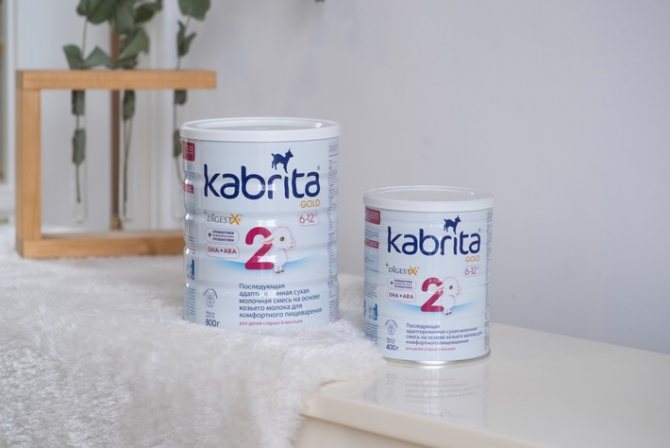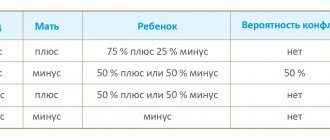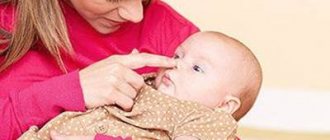Tips for caring for a newborn baby at home
Treatment of the umbilical wound of a newborn
Upon discharge from the maternity hospital (usually 3-5 days after birth), the umbilical wound has not yet had time to heal. And it must be processed once a day.
To do this you will need:
• hydrogen peroxide;
• cotton pads and sticks;
• brilliant green.
Wash your hands thoroughly and then apply hydrogen peroxide to the wound. After 20-30 seconds, blot your navel with a cotton pad. Remove only those crusts that come off on their own!! Disinfect the wound with brilliant green.
Bathing a newborn
Until the umbilical wound has healed, it is not recommended to wet it!!
But how to carry out baby hygiene?! Bath?...Wipe the skin with a wet cloth????
Baby wet wipes will come to the rescue. They are also useful for wiping the baby’s skin in the morning and at every diaper change and, for example, if the baby burps after feeding. However, advice to mothers of newborn children is to carefully read the composition of the napkins. Many of them contain preservatives and fragrances that can cause allergies and dermatitis in newborns.
Among baby wipes, the Irish brand WaterWipes stands out for its safe composition.
They consist of 99.9% specially purified water and 0.01% grapefruit seed extract, which soothes the skin and protects the wipes from bacteria. They do not contain harmful soap, alcohol or parabens, which means they do not dry out the baby's skin. Unlike tap water, WaterWipes have the same pH as baby's skin, so their use results in a reduced risk of dermatitis.
To date, these are the only wipes approved by global allergy associations, such as the American National Eczema Association.
WaterWipes are so safe that they are even suitable for wiping nipples. And due to their sustenance, they can replace bathing in the first week.
When the belly button heals, the baby can already be bathed in a baby bath; up to 6 months he is bathed every day. The water temperature should be 37°C, then it is gradually lowered for hardening purposes.
Washing and toileting the spout
When washing your eyes, wipe them in the direction from the temple to the bridge of the nose. For each of them use a separate cotton pad.
If crusts form in the nose, they are carefully cleaned with a cotton swab dipped in cosmetic oil.
During the procedures, pay attention to the folds behind the ears, on the neck, legs and arms. You can wipe them with a damp cloth and also apply special baby oil or cream.
Our advice to mothers of newborn children is to carefully monitor their nails. Toddlers move their arms chaotically and often scratch their faces. It is better to do the first manicure in the maternity hospital or wear special mittens. At home, trim your nails twice a week with rounded scissors.

Changing diapers
Diapers should be changed as soon as the baby goes to the toilet, but at least every 3 hours. After you remove it, be sure to wipe your skin with a damp cloth or rinse with water and pat dry with a towel. Don't rush to put on a fresh diaper right away. Air baths for 20-30 minutes – prevention of diaper rash and dermatitis.
What to expect on baby day?
The first trip to the clinic occurs when the baby turns one month old. It’s better to do this when the baby has a scheduled nap, so that waiting in line won’t be so tiring. Find out in advance the appointment schedule of the pediatrician and other specialists, as well as the reception phone numbers . After waiting your turn, you go into the office of the local pediatrician. As a rule, a nurse is also present at the reception; she keeps all the necessary records, issues certificates and coupons for the dairy kitchen. The doctor and nurse are already familiar to you, as they visited you at home. The pediatrician weighs the child, measures height, head and chest circumference, and checks the condition of the umbilical wound and fontanel. At the first appointment, the condition of the skin, mucous membranes, muscle tone is examined, and body temperature is measured. Very often, mom has a lot of questions, so write everything down in a notebook. If the need arises, the doctor will send you for a consultation with a neurologist, surgeon, orthopedist or otolaryngologist. On this day, the wait to see these specialists is not as long as on ordinary days. If there is no need, then all specialist doctors will need to be examined only when the baby turns one year old, and then annually.
Read more: Where to view the cadastral plan of a land plot
If you have problems with feeding, you will be given a ticket to be placed in the dairy kitchen. Every morning you will be able to receive an analogue of an adapted milk formula, and later cottage cheese and kefir. At the beginning of each month, or at the end of the previous one, preferably on baby's day, you need to take a referral from your doctor for this. Children receive such additional nutrition until they are three years old; with age, the norm increases.
When you come home after the clinic, wipe all exposed areas of your baby’s body with saline solution. This will reduce the risk of possible infection. An older baby should definitely be praised for good behavior in a public place. This is stressful for a small child, so create the most comfortable and calm home environment for him on this day.
With a baby not on baby day
If for some reason you were unable to visit the clinic on your baby's day, then come at any convenient time. But it is worth considering that on other days there are many adult visitors in the institution and, therefore, the risk of infection increases. Take all necessary measures. Most often, young children are allowed to skip the line, but this depends on the individual. Your baby is by all rights not a priority on this day, so please be patient. You may have to wait in line to see all the doctors you need.
Mumlife - an application for modern mothers
Until what age is a child considered a baby? Otherwise, in the clinic, baby day is Thursday, I want to understand at what age you can go on other days)
In the application you can view all the photos of this post, as well as comment on and read other posts by the author
The Mamlife app is faster and more convenient

Read these posts in Mamlife - the most popular application for female communication!
Tips for feeding your baby in the first month of life
In the first month of life, an infant gains an average of 20 grams per day, this is important for his growth and development. The best food for a baby is mother's milk. It provides it not only with nutrients, but also with immune protection. In addition, it is very convenient, because... The milk is at the right temperature and is always nearby.
However, sometimes difficulties arise with breastfeeding:
• the formation of lactation does not always proceed smoothly, especially if there was a caesarean section;
• a woman requires treatment that is not compatible with feeding;
• the baby does not latch on well and/or does not gain weight well.
In such situations, infant formula will help out. For a newborn, the best option would be a goat milk formula because:
• in its protein and fat profile it is much closer to breast milk. It will be much easier to organize mixed feeding using a formula based on goat's milk or return to breastfeeding after it;
• such milk is easier to digest than cow's milk;
• it is rich in microelements (copper, molybdenum, manganese);
Our advice to mothers of newborn children is to always have a jar of adapted goat milk formula in stock. An excellent option would be Kabrita infant formula.
Produced in the Netherlands, formula milk is traditionally produced on family farms. The country has strict state control not only over the production of the mixtures themselves, but also over dairy farms, feeding and caring for animals. This means the quality of the product is at a very high level.
When producing Kabrita formulas, a special Digest X complex is included in its composition. It repeats the structure and effect of breast milk fats. In addition, the mixtures are enriched with the most valuable and very healthy goat milk whey. And this is very important for the child’s comfortable digestion.
Cabrita Gold also contains:
• nucleotides for immunity;
• fatty acids Omega-3 and Omega-6;
• prebiotics and probiotics;
• natural oligosaccharides;
• Natural amino acids.
It is important to remember that choosing the right mixture will allow the baby to grow strong, healthy and avoid unnecessary tummy problems!
Infant day at the clinic, what is it?
The long-awaited day has come when your baby is born.
This is the most joyful event in the life of every family. Now your daily routine will change, and will be built only taking into account feeding and caring for the baby. The most important thing for parents is the health of their baby. In the first months after birth, both local pediatricians and visiting nurses help with this. While still in the maternity hospital, your local clinic receives information about the birth of the child. He is registered by the local pediatrician. When you return home, a doctor comes to your home over the next three days. He not only needs to examine the newborn, but also check the conditions in which he is located, as well as get to know the parents and family members. The doctor will leave you all the necessary telephone numbers for the clinic, nurse, call service, and emergency ambulance. The visiting nurse will visit you once every three days during the first month. She will check how the umbilical wound is healing and answer all your questions about the care and feeding of the baby. You will need to provide her with an extract from the maternity hospital, which contains basic information about the newborn - height, weight, how the birth went and Apgar score. She will record all this information in your medical record. If you subsequently need massage sessions, she will be able to conduct them at home or in a children's clinic. Every clinic has a baby day. This may be one of the working days when babies under one year of age are given priority services. On this day, no routine medical examination is carried out in order to limit as much as possible the contact of infants with adult children and their parents. This is especially convenient when your baby is about to get vaccinated. All necessary specialists are at their workplaces. If older children come to the appointment, then infants are allowed in out of turn.
You can refuse to visit the clinic, but to do this you must issue a written refusal to join and refuse service. If financial resources allow, you can be observed in a private clinic or use the services of a family doctor. Each family decides this issue independently.
Infant day, up to what age?
Infant day is set for examining babies up to one year old. In some clinics, children two or three years old may also be a priority on this day.
Read more: In what cases is a deferment from the army granted?
Tips for organizing walks and sleep
In the first month of life, the baby sleeps 17-20 hours. Sleeping while walking in the fresh air is especially beneficial.
It is better to start walking from the 10th day of life, from 15-20 minutes, gradually increasing to 2-3 hours. They are canceled if the air temperature in winter is below -15°C.
The first weeks of a newborn baby at home are a very exciting time for parents. Expert advice will help you quickly learn how to care for a child, avoid mistakes and fully enjoy this short period of infancy.
Caring for a newborn: How often should diapers be changed?
If the mother is a happy owner of good lactation, then she will begin to put the baby to the breast at his first request. If you put your baby to your breast every hour, then every hour he will empty his intestines - this is a reflex of a newborn when, when eating, the baby immediately empties his intestines. Does this always happen? Most often, always, and every time after this, be sure to change the pampars for the newborn. Otherwise, he will sleep poorly, cry, and his priest will ban him. If the diaper becomes wet from urine, it needs to be changed if it no longer absorbs moisture and this bothers the baby. There are diapers that should be changed as soon as your baby has emptied his bladder because they absorb moisture slowly. The diaper will have to be changed every time the newborn uses it.
Interesting: Halloween and its prejudices










